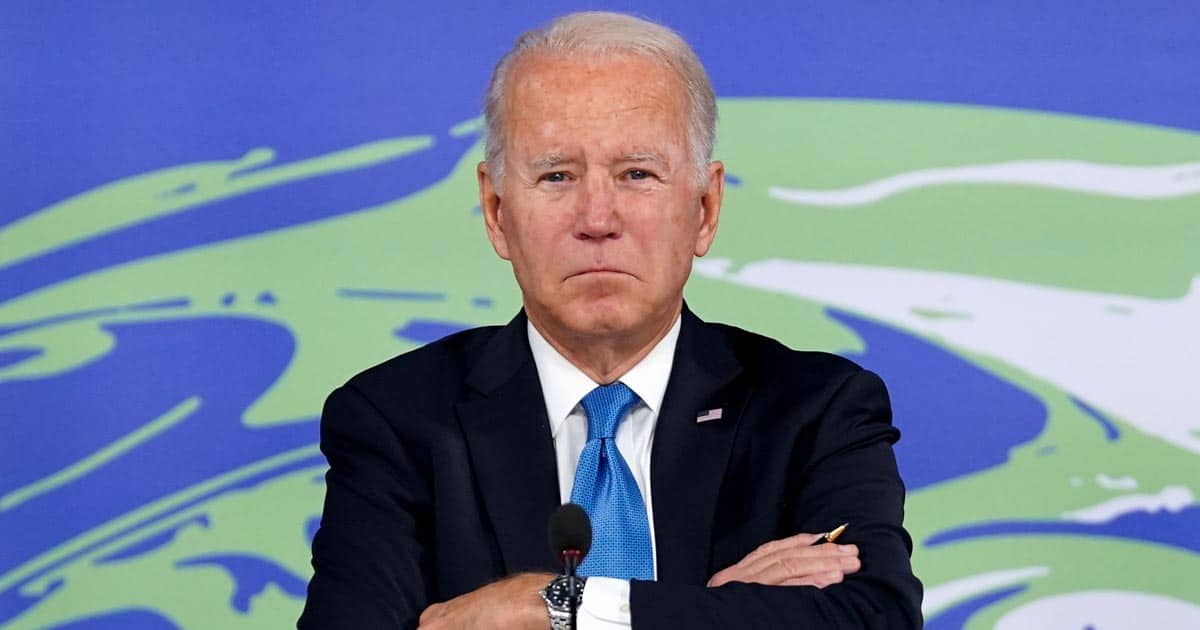The attorneys general of 19 states have joined forces in a federal lawsuit against the Democrats’ “radical” green agenda policies which purport to “fight climate change.”
Alabama is spearheading a coalition of 19 Republican-led states in the federal lawsuit against five Democrat-run states.
They allege the Democrat-led states are trying to coerce red states into complying with strict globalist “climate” policies that could imperil their residents’ access to affordable energy.
The filing was made at the U.S. Supreme Court on Wednesday.
The plaintiffs argued that Democrat-led states of California, Connecticut, Minnesota, New Jersey, and Rhode Island are essentially forcing residents of politically opposed states to feel the repercussions of their restrictions.
Therefore, the Democrats in those states are dictating national energy policy.
In a statement, Kansas Attorney General Kris Kobach, one state official who is party to the lawsuit, said:
“California and New Jersey and the defendant states are trying to make national energy policy through state laws.
“And if the Supreme Court does not step in, they may succeed.”
“If the defendant states’ laws have their desired effects, fossil fuel energy companies across the nation will either be hit with massive damages or have to change their policies directly,” he added.
“And, those defendant states will affect the availability of cheap, affordable energy in our states.
“One state does not have the right to control policy in another state.”
Of criticisms that it may not be apropos to escalate such a case immediately to the Supreme Court, Kobach said this is a rare instance where it is needed.
He said the high bench has always had jurisdiction over interstate quarrels and that the “opposing interests” in this filing are especially stark.
Alabama Attorney General Steve Marshall is leading the charge.
In a statement, Marshall said he has the right to take the complaint directly to the Supreme Court.
The Alabama AG said the high court has original jurisdiction over state action.
He pointed to other cases in which one state takes legal action against another and makes its plea to the SCOTUS.
“When you have two sovereigns that are making claims against one another, it is the appropriate venue for those claims to be heard,” he said.
Marshall said the crux of the matter is essentially that defendant states are crafting climate policies that will have an undue effect on Alabama and its fellow plaintiff states.
“I think one of the things that is so most objectionable is the fact they are using common law claims, plus the statutory Deceptive Trade Practices Act claims, as a vehicle to engage in climate policy,” he said.
“I think, broadly, the issue is how does this affect the constituents of our individual states?
“And so the legitimate question is: Why should we care in Alabama how California chooses to operate in the state courts themselves?
“Well, if California prevails, they’re really going to be able to do two things,” Marshall said.
“They’re going to be able to impose a tax on carbon because that’s what [legal] ‘damages’ truly are in these cases.”
He expressed hope the Supreme Court would agree that energy and climate policy is a federal issue and not one the states can dictate in a way that could affect others.
The legal complaint reads in part:
“Defendant States want a global carbon tax on the traditional energy industry” …
“In their view, a small gas station in rural Alabama could owe damages to the people of Minnesota simply for selling a gallon of gas.”
The complaint cited API v. Minnesota, a case brought against energy firms for alleged harm caused by their contributions to “global warming,” among other things.
It also referenced a case from 1981 brought against West Virginia by bordering states that took issue with a policy that required Mountaineer natural gas producers to meet local needs before exporting their valuable energy source.
Kobach said this current multiparty lawsuit is one of a few qualified cases that should be heard first and ultimately by the Supreme Court:
“A relatively small number of cases can go directly to the Supreme Court because they are complex between one state and another or one group of states and another group of states,” Kobach said.
Kobach added that the high bench has at times declined to hear such cases.
Asked about what plaintiff states’ resources might be if New Jersey, California, and the others are permitted to continue crafting policy with alleged wider-reaching effects than statutorily permitted, Kobach said Kansas, for example, has limited recourse.
“The second course of action would be [to] seek legislation in Congress, preempting what the defendant states have done, but that is a difficult process,” he said.
“It takes a long time, and it may come too late, depending on what happens in these defendant states.”
Kobach said the current suit is not the first of its kind.
The Supreme Court previously upheld California’s sow housing law that plaintiffs said led to an avoidable spike in the cost of bacon and other pork products outside California.
READ MORE – Climate Scientist Calls for Mass Depopulation to Fight ‘Global Warming’

Our comment section is restricted to members of the Slay News community only.
To join, create a free account HERE.
If you are already a member, log in HERE.